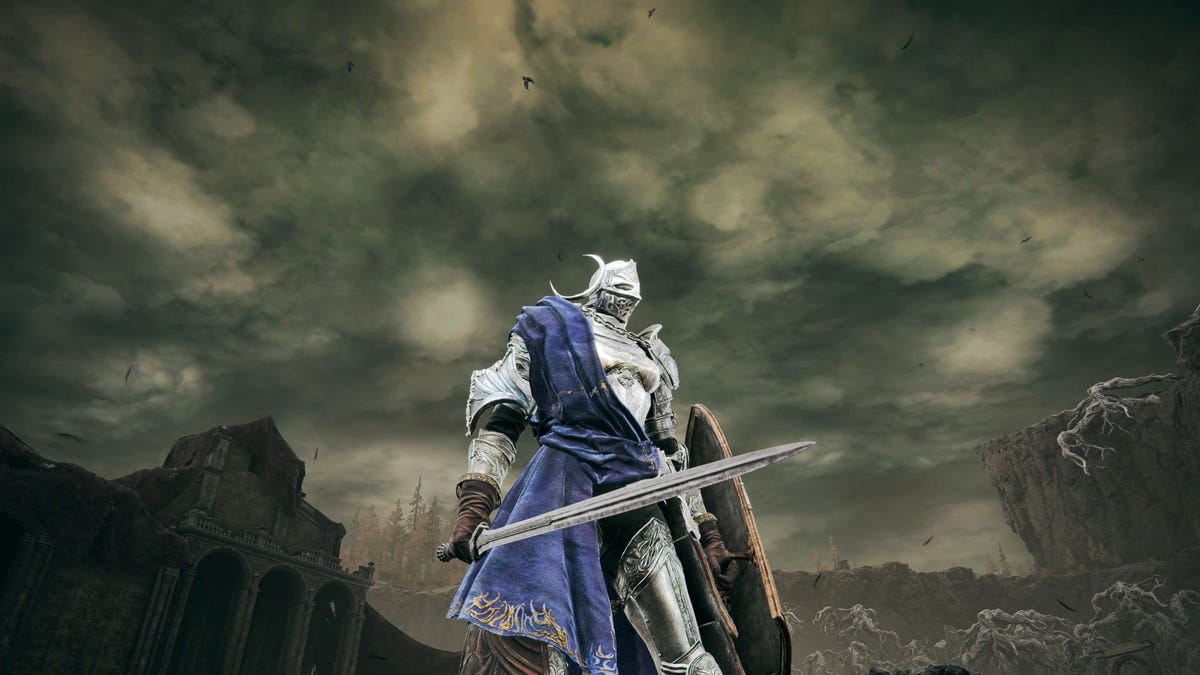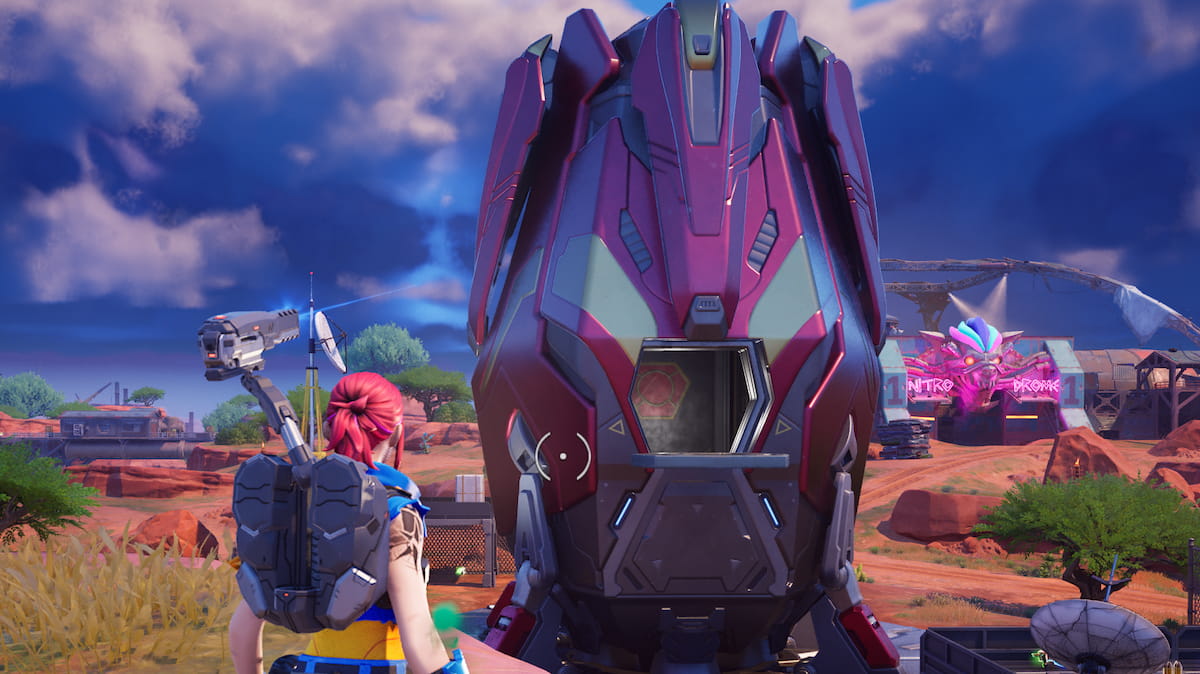Like limited-time public demos, media hands-on preview builds often feature handy text boxes that flash on the screen to inform the player that only a few minutes remain. During my half-hour with Atomfall at Gamescom, one appeared while I was chatting with the flat-capped landlord of a painstakingly British pub. Alf Buckshaw of the Grendel’s Head had done well to frame the world beyond his grimy windows, waxing about the post-government military quarantines and Droog-like bandit gangs that have cropped up in the wake of Rebellion’s fictionalized exaggeration of a real 20th-century nuclear disaster. But time was of the essence, so I brandished a cricket bat and started lamping the poor bloke in the head. To my surprise, he was up for a scrap, even in his old age.
Check out Polygon’s Gamescom 2024 hub page for all our coverage of the world’s biggest games event.
Playing a choice-driven RPG with a built-in time limit can force you to do some strange and ethically murky things. And I don’t typically do so with an in-person audience, so it was hard not to worry about the judgment being passed over my shoulder by Rebellion’s head of design, Ben Fisher. After I was gunned down by a tipsy soldier for my crimes against the elderly, I stood up for a quick chat about this inimitable Cumbrian STALKER-like.
“I wish we had a bingo card for what players have been getting up to during the demo,” Fisher said before discussing the inspiration behind Atomfall. “There are lots of games that take place in atomic post-disaster zones, but [prior to this] there wasn’t one based around the world’s first major nuclear disaster, which was at Windscale.” The three-day reactor fire that broke out in 1957 at the Windscale nuclear site (now called Sellafield) in Northern England is the worst to occur in British history, releasing radioactive fallout into the atmosphere and condemning local milk supplies. “In the real world, the plant was there to make plutonium for bombs, and really, generating nuclear power was a cover for a government operation,” Fisher continued. “In our story, the plant has moved to a slightly different location and has a slightly different secret project. Part of the mystery is uncovering what’s happened here.”
Inevitably, comments will call Rebellion’s latest “British Fallout,” but Atomfall is far more brutal, with the desperate combat putting it closer to Metro or STALKER than its vault-happy American counterpart. It’s also very much a detective game at heart, one with mysterious leads instead of quests and a role-playing spiderweb where you scavenge your way to unexpected discoveries, liaise with factions, and come to roundabout conclusions in a series of lush Lake District environments. “Fallout: New Vegas is the closest Fallout analog given that it’s largely one interconnected story about a specific location,” Fisher said.
The Gamescom demo skipped over Atomfall’s opening, but the story begins in 1962, five years after the Windscale disaster. Our amnesiac protagonist is woken up in a bunker by a bleeding guy in a hazmat suit, who tells them they must find The Interchange, a place central to Atomfall’s leading mystery. Like the rest of the game, it’s up to you whether you help him in exchange for the information. The disaster zone you later enter is locked off from the rest of the world, and some kind of interference stops transmissions from going in or out. “Nobody knows what the outside looks like; it’s all left kind of bleak and ambiguous,” Fisher said. “There are clues about what’s going on, but we’re leaving some things open to interpretation, as that adds to the texture of being a detective.” The game world consists of six maps replete with bunker dungeons and interiors, including bakeries, churches, and castles. You can travel back and forth between them to chase leads, with Fisher noting ominously that the population will change based on your actions.
”Dark Souls was a useful reference point because, at one point during development, [Atomfall] was structured more like a Metroidvania game — it was a sequence of sandbox maps, and each would have a major story dungeon where you’d get a tool or learn some information to unlock a new location,” Fisher said. “But as we were developing, we thought, What would happen if we just unlock all the doors and let the players go anywhere?”
My demo’s focus was Slatten Dale, a pastoral playground with a pillar of electromagnetic anomaly constantly visible in its margins. An initial conversation with a musical codger (who shared a surname with the publican who I would later bat to death) introduced me to Atomfall’s multiple-choice dialogue system, where you can pick between a rotating trio of options defined by mood tags, like Questioning, Honest, or Evasive. I enjoyed bantering and bartering with the dale’s slew of charming NPCs, and it was terrific to hear authentic Cumberland accents throughout, with characters unafraid of dropping “the” in any given sentence or throwing in a “summat” or “nowt.”
I scavenged some of the wrecked farmland nearby, stumbling past tripwires and Kilroy graffiti to pick up tins of not-Spam and other crafting materials. I also strangled a distracted outlaw to get the fabled cricket bat that would eventually be Alf Buckshaw’s undoing. You can also find military and survival manuals during exploration that provide access to skills, but to unlock them, you’ll need a specific material called Training Stimulants. “They let you learn things quickly, and there’s a justification for why that is in the fiction — it’s part of the mystery,” Fisher said. Atomfall’s skills are split across melee, ranged, conditioning, and survival, and they allow you to mitigate damage types, disarm traps, or stun longer with your kicks, to name a few examples.
Inevitably, the environmental leads I had picked up during my conversational adventures led me toward immediate danger, and I strayed recklessly into a compound patrolled by armed bandits. Atomfall’s combat is frantic but considered, with long, intentional animations and heavy feedback. It’s well-suited for the immersive sim lifers who enjoy the unforgiving encounters of STALKER: Shadow of Chernobyl, but it’ll be an uphill battle for those used to the twitchy omnimovement touted by modern shooters like Apex Legends and Call of Duty: Black Ops 6. Thankfully, Rebellion has opted for adaptive play styles over rigid difficulty settings to help mitigate some of the teething pains. “You can tune how intense you want combat or survival to be, and you can tune how guided you want the investigation to be,” Fisher said.
I got a few close-up whacks in on what appeared to be the leader, but in a fit of thrilling shock, I then fumbled three revolver shots and had to Molotov the compound’s gate to keep the crew of hooligans from giving chase. “We want you to always be under pressure when you get into combat because combat is largely optional,” Fisher said. “You can play through the game without killing anyone, or you could kill everyone, including what you would consider quest characters. There are still options to finish the game if everyone’s dead, and it’s up to you who you trust or don’t trust.”
After an eerie underground excursion where I had to fend off a creepy-crawly crew of eyeless mutants, I made it to Wyndham, a sleepy cobblestone village occupied by an army cabal called Protocol. “Their job was to enact the quarantine protocol and secure the place, but they’ve been trapped in with everyone else,” Fisher said. “So the question is… are they the official government, or are they warlords? They don’t have communication with the outside, so how in charge are they?” Protocol’s subjects had a distinctly British “keep calm and carry on” attitude about them, no doubt propagated by the enormous robot clanking about near the village hall. There’s also a group of pagans out in the woodlands, a “back to nature” cult that has started worshipping the disaster and building wicker men to revere it.
Unlike in Fallout, there are no catchy licensed ’60s tunes to keep you company here, but Rebellion has been writing music in-house to add another veneer to Atomfall’s storytelling. “There are gramophones and radios playing what sounds like folk music, and we’ve been writing those songs to reflect our lore because the mystery at the heart of the game isn’t just something that’s happened right now — the roots of it go back in history, and we’re trying to show the influence of those events through the music.” It’s this dense and layered approach to narrative that really drives my interest in Atomfall, a game that cites generation-spanning esoterica like Children of Men and The Prisoner as tonal influences. With its old-school combat and lack of hand-holding, it certainly won’t be for everyone, but I could have easily spent several hours pottering about Slatten Dale, poking my nose into its crannies and cottages to get closer to some of Atomfall’s most tantalizing mysteries.

 2 days ago
2
2 days ago
2






/cdn.vox-cdn.com/uploads/chorus_asset/file/25242409/20230608_Palworld_Screenshot_02.png)



 English (US) ·
English (US) ·